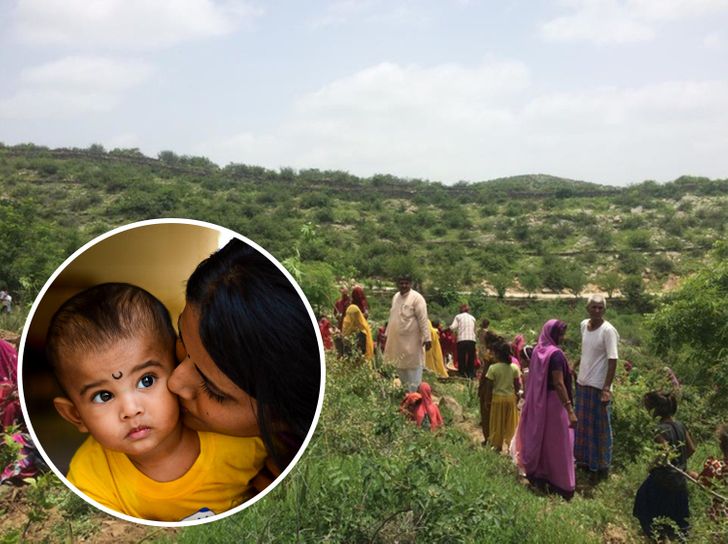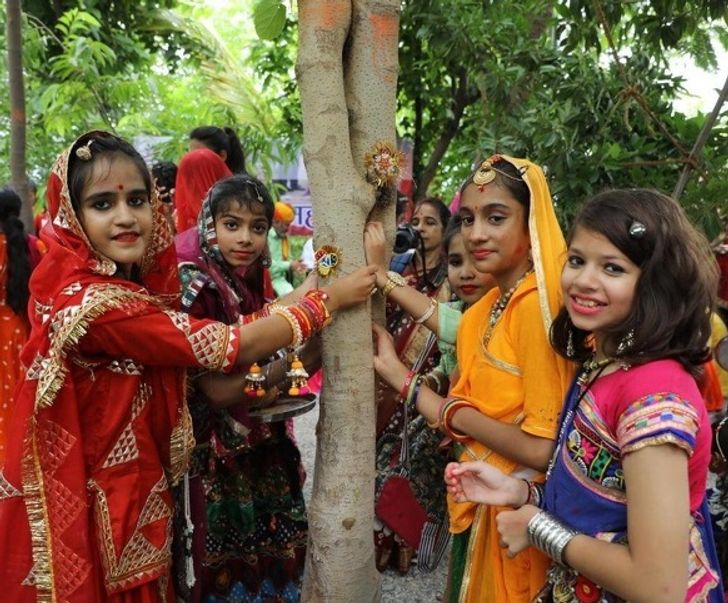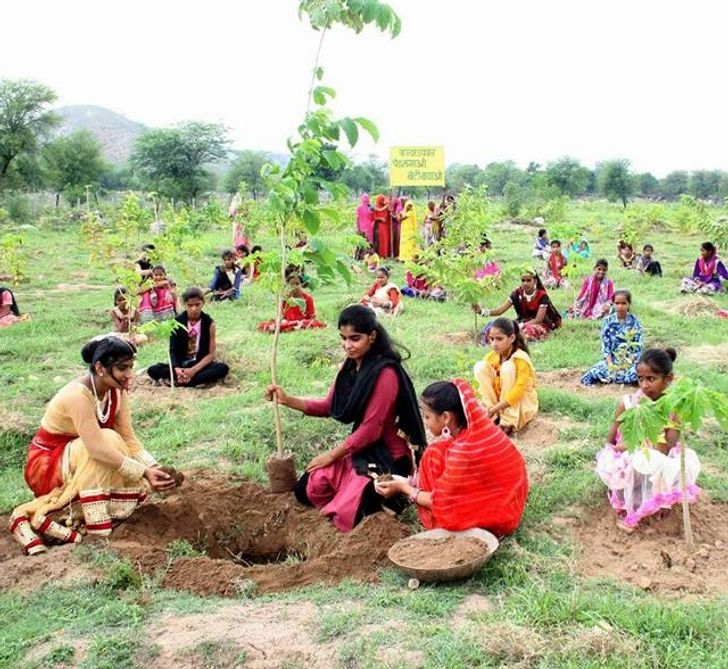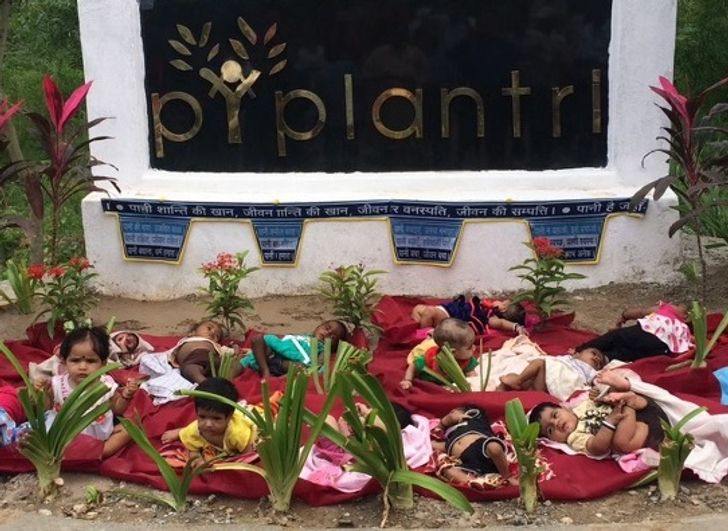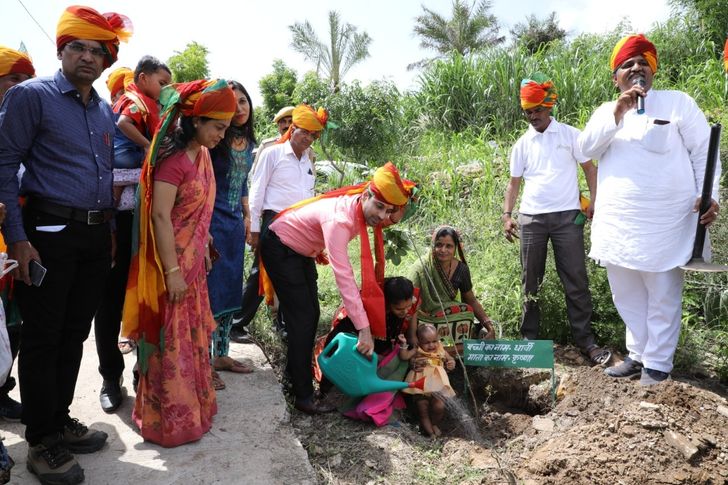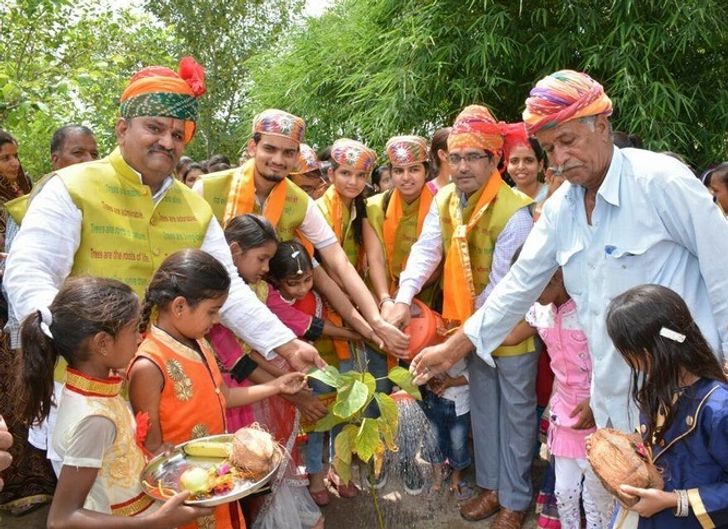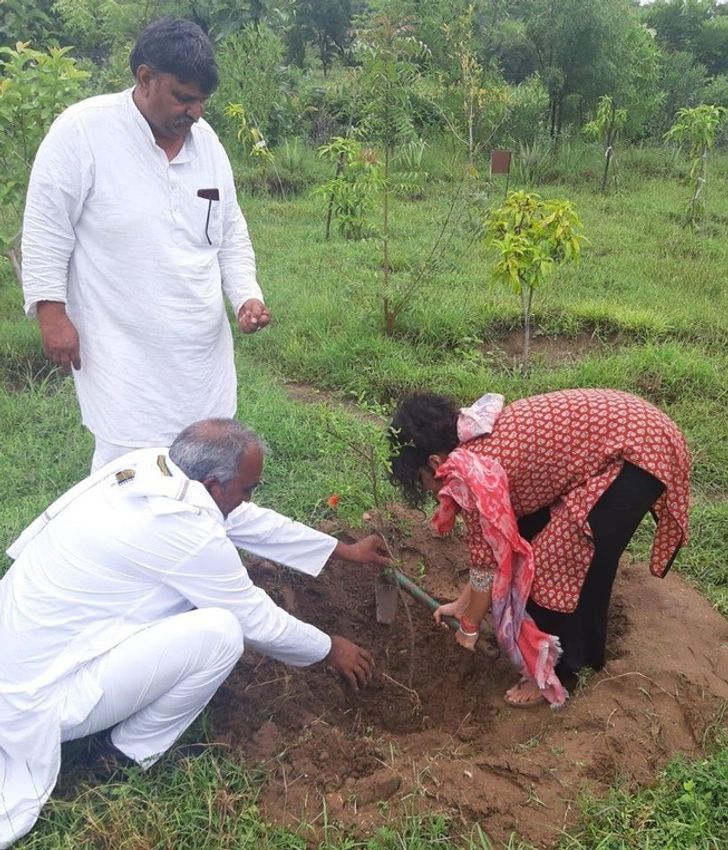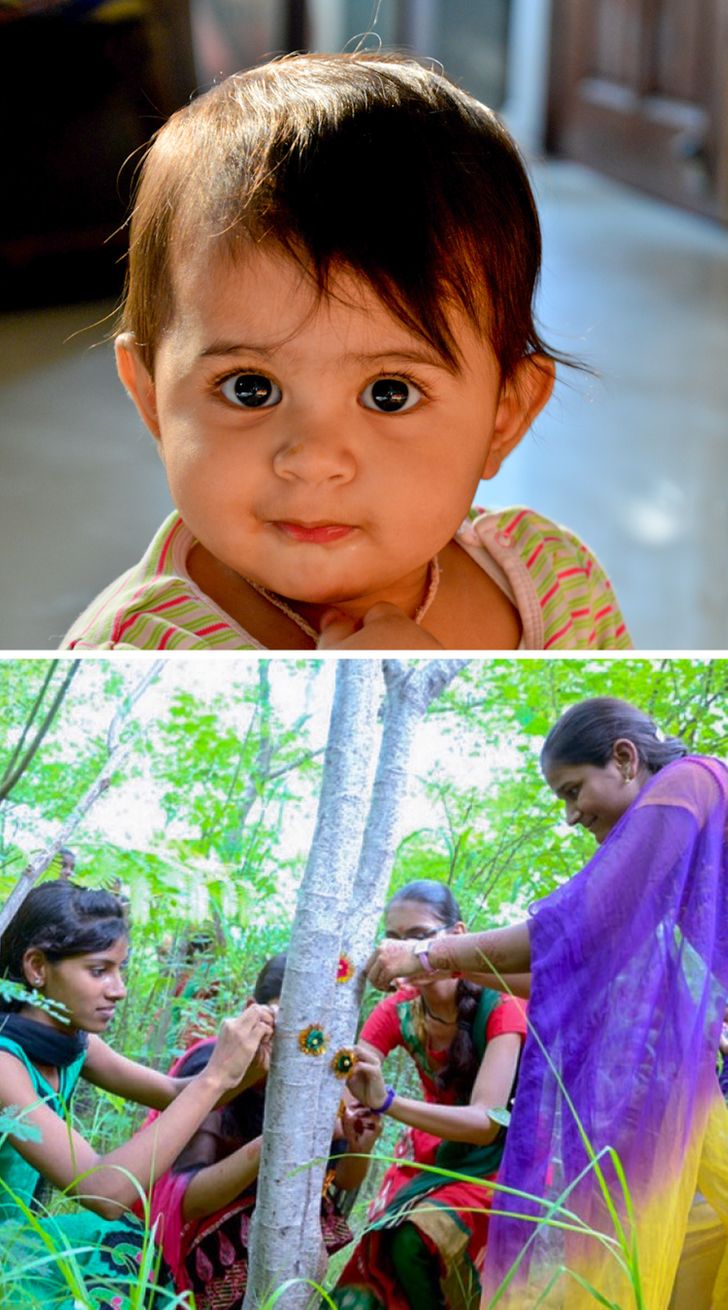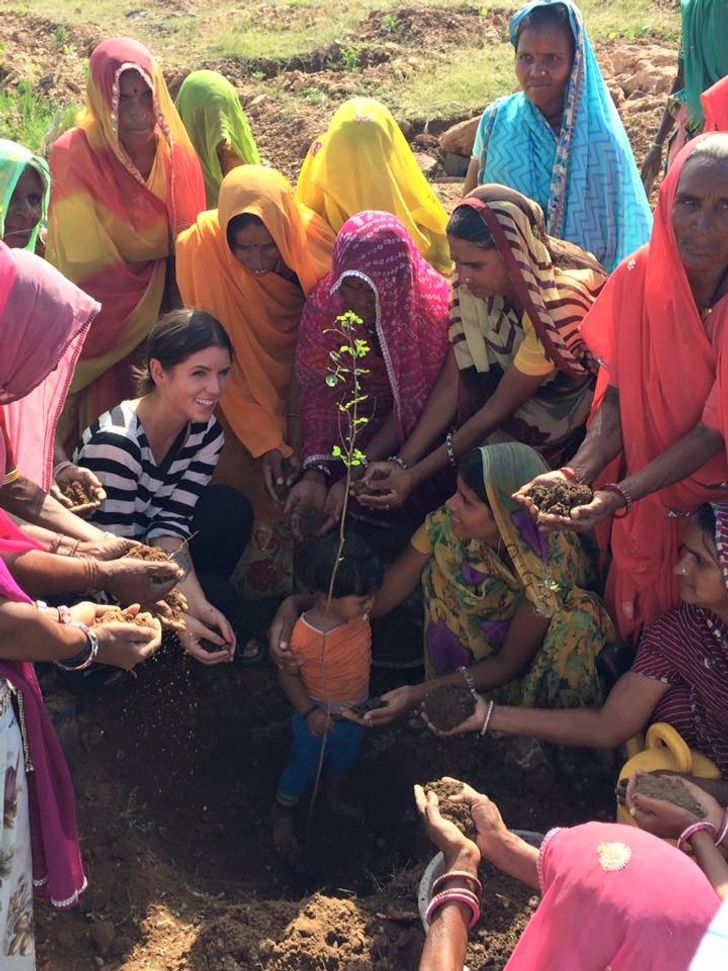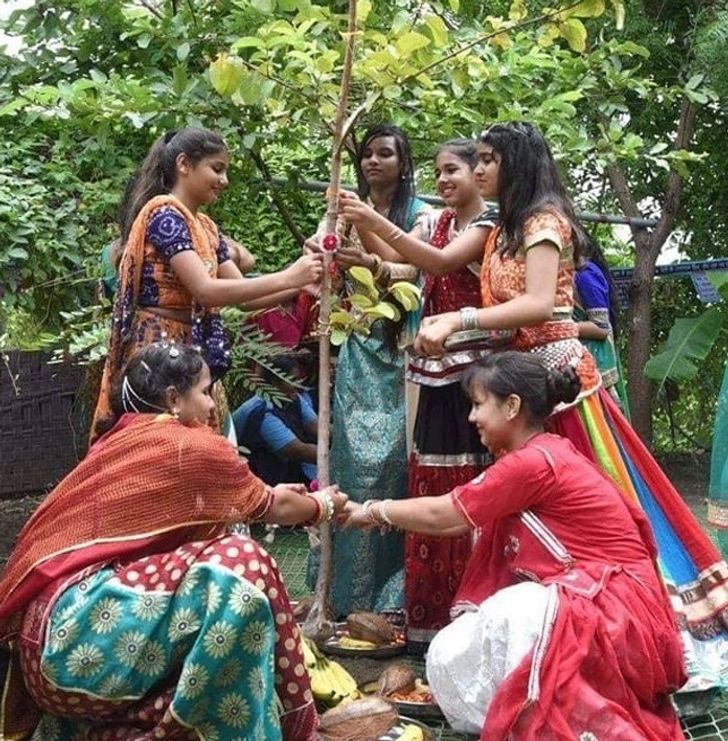Stupendous idea!! Cheers to the open minded villagers
A Village Plants 111 Trees Every Time a Girl Is Born, and Now They Have a Whole Forest
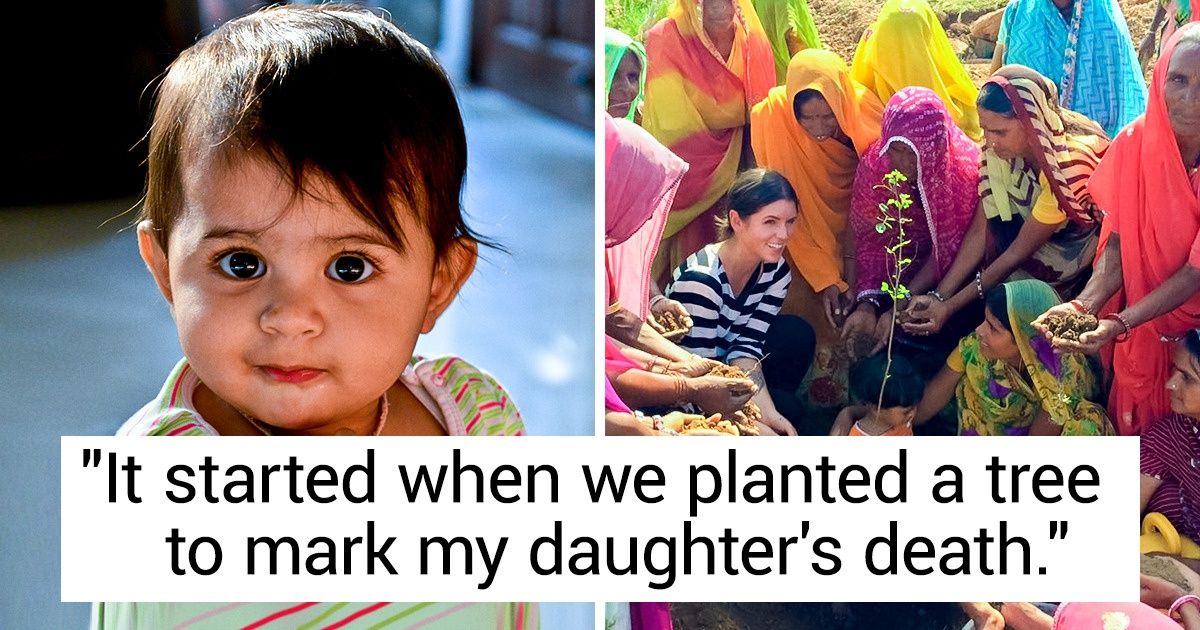
It seems that an increase in the human population always harms the environment. But this village found a way to celebrate newborn girls by supporting their people’s ecological and economical future. Additionally, the villagers managed to use this tradition to fight historical prejudice against young women.
Here at Bright Side, we were very moved by this tradition of making the world a greener, more equal place, and we couldn’t help but want to share it with you. Behold this incredibly touching story that should be replicated not only throughout India but throughout the world!
The custom was born in 2006.
Paliwal wanted to protect the future of female children in the village, so he launched a program that would not only help nature but also raise money for the girls.
111 is a lucky number.
The tradition helps Piplantri grow economically and environmentally.
The trees provide food, energy, and income to the 8,000 residents of Piplantri and encourage them to achieve long-term economic and environmental sustainability. Plants also filter the air and help contribute to a higher water level and richer wildlife.
The village also collects a capital for each newborn girl.
The tradition is not only about planting trees. In order to make sure the young women are always provided for, the village also collects a deposit capital for newborn girls — the amount of 31,000 rupees (which is approximately $400) remains untouchable until her twentieth birthday. This tradition is meant to fight the prejudice of a girl being a financial burden on her parents.
The tradition also implies that a girl can’t get married until she gets an education.
A decade later, the Piplantri village became world-famous for its “eco-feministic” tradition. The villagers have planted different trees that started making them income: like the sheesham, mango, neem, amla and many others.
Villagers also plant natural pesticide plants and take good care of the forest.
Every year, Indian citizens celebrate Raksha Bandhan, a traditional festival where all sisters tie a bracelet onto their brothers’ hands. And Piplantri women take this tradition one step further — they tie bracelets onto the trees as well as a symbol of protection.
Additionally, the Piplantri people started planting aloe vera next to the trees because it works as a natural pesticide. The village also started selling products made of the aloe plant like juice and gel, among other things.
Do you know of any other curious eco-friendly traditions? Does your family have one?
Comments
im from india and I am very proud that I come from this eco-friendly country!
Related Reads
10 Stories Where Kindness Made People Human Again

I Refused to Let My Boyfriend Discipline My Child—He’s Not His Real Dad

I Refused to Give Up My Baby, So My Mom Exposed a Terrible Secret

12 Moments That Prove Kindness Is Soft but Completely Unbreakable

12 Stories That Prove Real Kindness Is About Actions, Not Words

15 People Who Stay Kind Even When Their World Is Falling Apart

I Refused to Be Called the Office Villain by a Coworker Who Barely Works

I Refuse to Let My MIL Be in My Life, So I Gave Her One Last Payback

I Refused to Put My Health at Risk Because of My Job, Now HR Got Involved

12 Grandparents Who Prove They’re the Heart of a Family

15 Times People Refused to Be Mean—And Kindness Proved More Powerful

15 Quiet Moments of Kindness That Made the Biggest Impact

